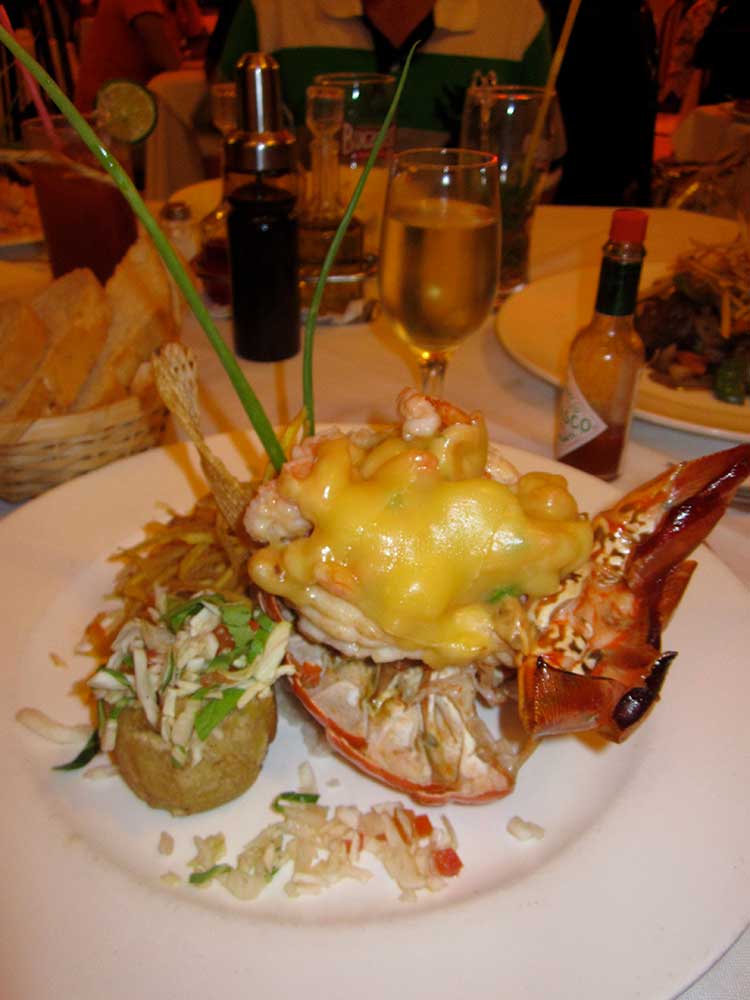Communist law made the fishing, sale and consumption of lobsters outside of government-owned vessels and venues strictly illegal in the early 1960s. From the 1970s to virtually today, Cuba imports fish (usually juvenile merluza of a type normally used for bait fish or pescadilla in any other country) rather than allow for the free fishing, sale and consumption of most species of fish in Cuban waters. Like Caribbean lobster, fish typical of coastal waters such as red snapper, flounder and the like are for export only, meant to garner government revenues. Nonetheless, one of the barometers of the breakdown in citizens’ fear of the state and defiance of its allegedly ideological mandates was the open sale of lobster at many paladares like this one in the Obama years. In contrast to Maine’s fisheries, Cuba’s lobster pods are underfished. Cuba’s lobsters have a strong, delicious taste because they are not “babies” under the age of 14 as in US markets but 30-36 years old, fished at the peak of their sexual maturity and usually weighing 6-9 pounds.
